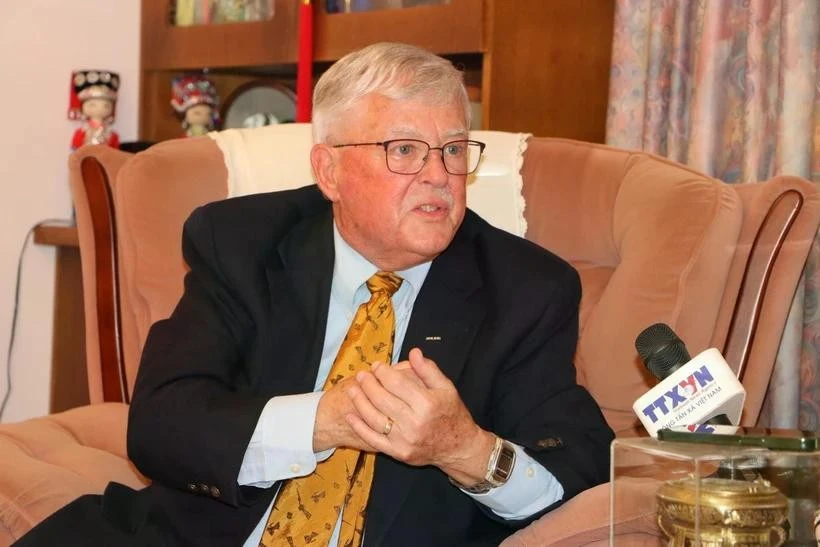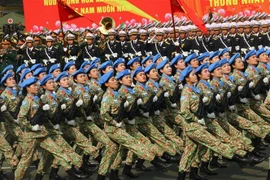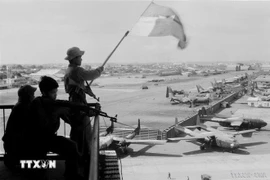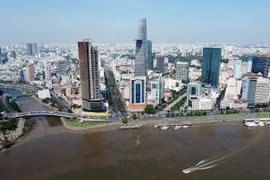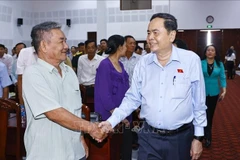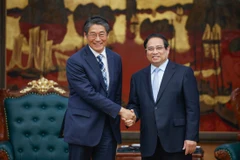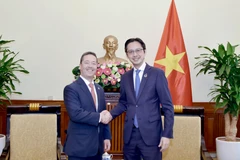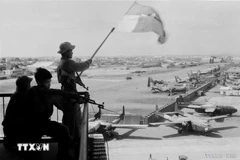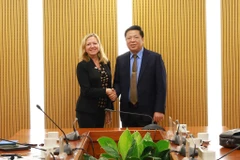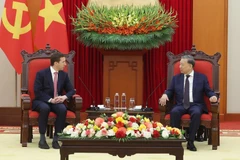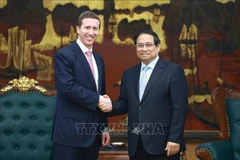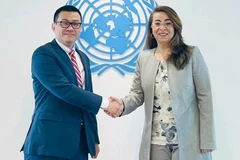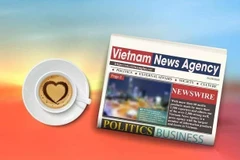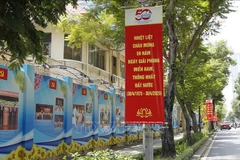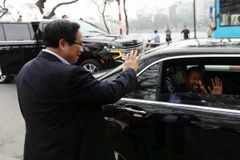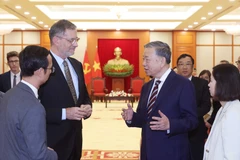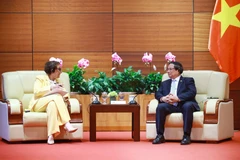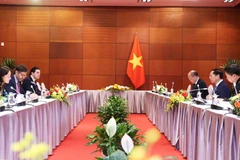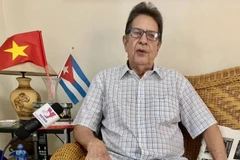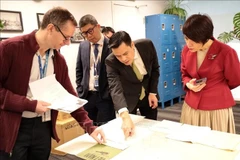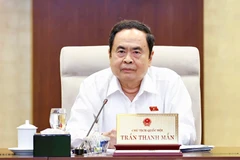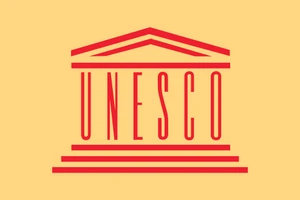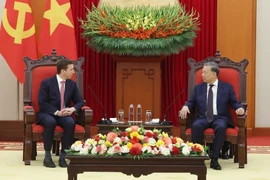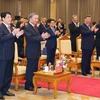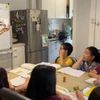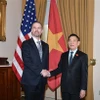Sydney (VNA) - In fifty years since the national reunification (April 30, 1975-2025), Vietnam has transformed from war-devastated developing country to a peacetime country that has attained lower middle-income status, said Professor Carl Thayer, saying what impresses him most is that with every visit to Vietnam, he witnesses remarkable and dynamic changes taking place across the country.
In an interview with a Vietnam News Agency correspondent in Australia, Professor Carl Thayer of the Australian Defence Force Academy under the University of New South Wales, recalled that the first 15 years following reunification were an exceptionally challenging period for Vietnam.
He pointed out that the country faced numerous hardships, including the border wars in the southwest and north, along with the US-imposed embargo on aid and trade, which placed significant strain on Vietnam’s post-war recovery and development efforts.
The key factor in extricating Vietnam from a socio-economic crisis was the strategic far-sighted vision of its leadership to carry out the renewal (doi moi) of the country’s economic system and open Vietnam to the outside world, allow the private sector to grow in Vietnam.
Vietnam abandoned rigid central planning and developed a socialist-orientated market economy. Vietnam diversified and multilateralised its external relations. The year 1995 was a pivotal year when Vietnam normalised relations with the US and joined the Association of Southeast Asian Nations as its seventh member.
Vietnam attracted foreign direct investment and shifted from an agricultural economy to a manufacturing one, acquiring the resources to reduce poverty and raise family income.
Reflecting on Vietnam’s historic victory on April 30, 1975, the scholar emphasised that the core driver behind this triumph was the Vietnamese people’s unwavering national unity. He noted that this spirit of solidarity had long served as a vital force in the country’s struggle for independence and reunification.
According to Thayer, developing national solidarity was the key to overcoming the division of Vietnam into three regions under French colonial rule, evidenced by the founding of Viet Minh (League for the Independence of Vietnam) in 1941, the success of the August Revolution in 1945, President Ho Chi Minh’s declaration of independence on September 2, 1945, and ultimately, the victory at Dien Bien Phu in 1954, which marked the end of the protracted war against French colonialism.
The April 30 victory was a combination of military art and skillful diplomacy, taking advantage of national strength and the strength of the times. After 1975, the Vietnam People’ Army safeguarded Vietnam from attacks on its southwest and northern borders, modernise and defend national sovereignty on land and at sea from the mid-1990s to the present.
According to the professor, Vietnam not only diversified and multilateralised its foreign relations through strategic partnerships as well as active and proactive international integration by joining APEC, ASEAN, and the World Trade Organisation. This diplomatic strategy proved a resounding success as Vietnam was twice elected a non-permanent member of the UN Security Council by a large majority vote.
Vietnam acquitted international prestige as a reliable partner through its pursuit pf independence, self-reliance, peace, cooperation, and development, he added.
Vietnam’s leaders have often called for “combining national strength and the strength of the times.” During the struggle for national unification, Vietnam was able to receive assistance from traditional friends but also modify this assistance to suit the conditions of Vietnam. General Vo Nguyen Giap modified his strategy to defeat the French at Dien Bien Phu. Vietnam modified Soviet military technology to suit the battlefield conditions in Vietnam.
Today, Vietnam encourages technology transfer and co-production. As Vietnam’s second International Defence Expo illustrated in December 2024, Vietnam could modify and develop coastal missiles and drones to suit its special conditions. Vietnam has also acquired the knowledge and skills to manufacture computer chips and electric vehicles.
The country has sent its students far and wide to learn about the Fourth Industrial Revolution and new innovations in science and technology, digital transformation, e-commerce, and artificial intelligence. It is now using this knowledge to make a breakthrough in development and avoid the middle-income trap.
In the context of Vietnam's increasingly deep integration with the world economy, many lessons learnt from the April 30 victory need to be recognised and promoted. The most important lesson is, Thayer said, Vietnam must always be able to evaluate its own strengths and weaknesses while pursuing a long-term strategic vision. The country can learn from other countries, but it must always pursue its national interests. This requires unity among the population, political stability, constant adaptability and critical innovation./.
